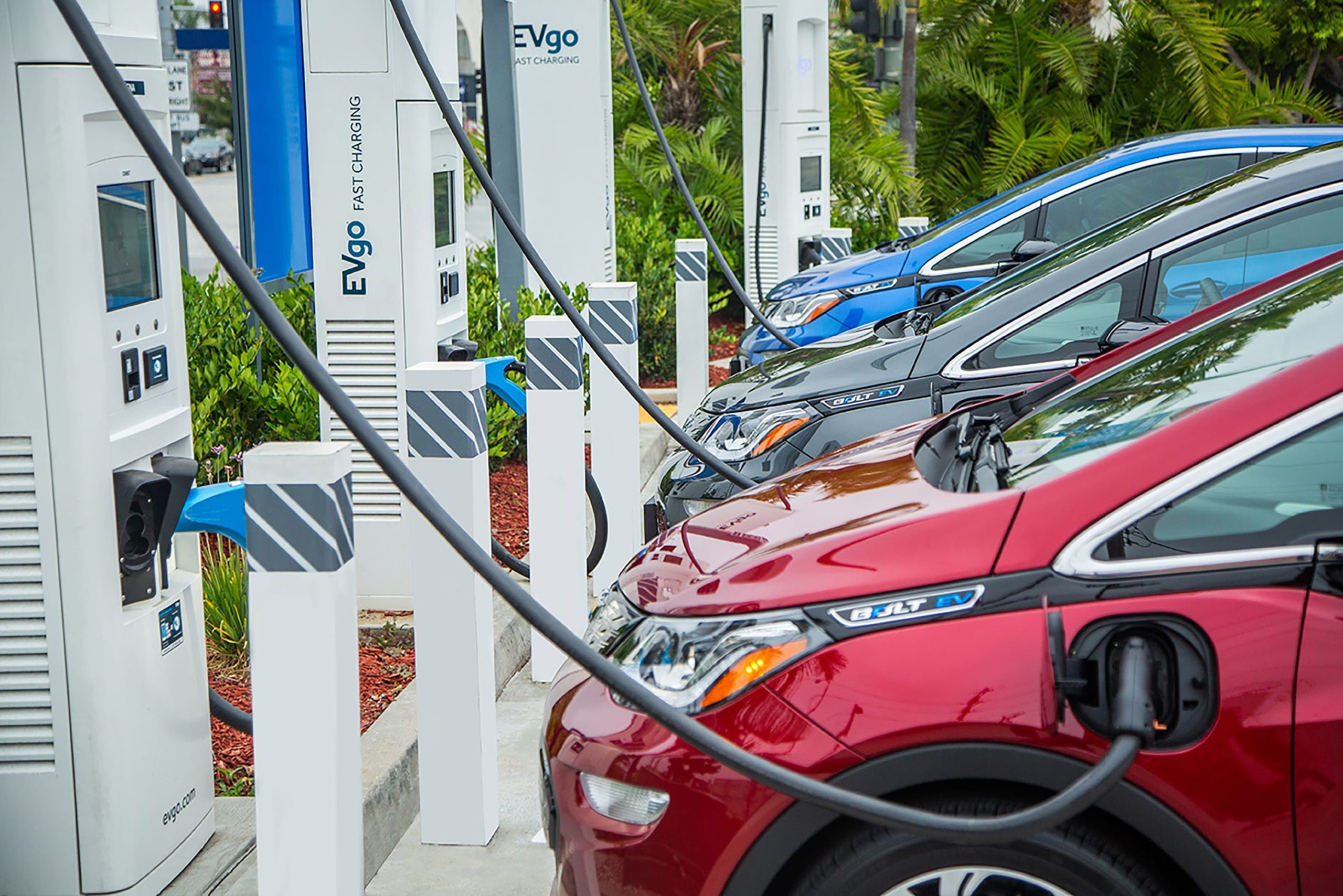🌿 Ruzu Non-Alcoholic Herbal Bitters
Ruzu Non-Alcoholic Herbal Bitters is a natural health supplement specially formulated to:
- ✅ Promote general wellness
- ✅ Detoxify the body
- ✅ Support the treatment of various ailments
Made from a powerful blend of 100% organic and medicinal herbs, Ruzu is completely alcohol-free, making it ideal for:
- 👪 All age groups
- 🌱 Health-conscious individuals
- 🌿 Anyone seeking non-alcoholic herbal remedies
Whether you're looking to boost your vitality, cleanse your system, or support healing the natural way, Ruzu Bitters offers a trusted herbal solution.
As consumers avoid electric vehicles (EVs) due to their high cost in comparison to automobiles with combustion engines and concerns about their ability to reach their destination due to inadequate charging infrastructure in the majority of nations, automakers around the world are reversing their plans for battery-electric vehicles.
To encourage EVs, the European Union (EU) passed a regulation in 2023 requiring all new vehicles and vans sold in Europe to have zero emissions by 2035.
This came after the deadlines for combustion engine vehicle exits had been repeatedly delayed.
The low demand for electric vehicles has caused various automakers, including Toyota, Volvo, Volkswagen, Ford, Porsche, Renault, General Motors, Mercedes Benz, Bentley, Aston Martins, and Hyundai, to cut back on their ambitions to produce them.
Toyota, for example, cut its 2026 electric vehicle production goals by a third, but it maintained that its goal of producing 1.5 million BEVs annually by 2026 and 3.5 million by 2030 would remain unchanged.
Volvo indicated that it would still be selling some hybrid models by 2030, abandoning its goal of being all electric.
It aspires to have 90–100% of automobiles sold by 2030 be plug-in hybrids or BEVs, with up to 10% being so-called mild hybrids.
Volkswagen has warned about decreasing demand on several occasions, but it has not altered its 2030 targets for BEVs to account for 70% of sales in Europe and 50% in the US and China.
The demand for electric vehicles (EVs) will determine whether plans for new battery plants were finalized or not, it stated.
A few months ago, Ford announced that it was discontinuing a planned electric Sports Utility Vehicle (SUV) and delaying a new electric version of its best-selling pickup. Additionally, the company reduced the percentage of planned annual capital spending allocated to BEVs from 40% to roughly 30% due to its growing emphasis on hybrids.
The carmaker announced earlier this year that it was reconsidering its aim to sell entirely fully electric vehicles in Europe by 2030, given the region’s lack of success with EV sales.
Porsche has said that it could only achieve its previously stated goal of 80% full-electric sales by 2030 if demand and advancements in the EV industry justified it.
Early in 2022, Renault stated that all of its brand’s sales in Europe would be entirely electric by 2030. However, two years later, the automaker informed journalists that it was considering a dual strategy—offering both BEVs and combustion-engine vehicles for the next ten years, so beyond 2030.
Aston Martin, Bentley, Mercedes-Benz, General Motors, and others are changing the goalpost for the complete transition to electric vehicles because they believe that consumer demand has changed since they made their first projections years ago.
Nigeria’s Electric Vehicle Trends
With relatively few new car purchases, Nigeria is a consumer country in the automobile sector.
Nigerians were encouraged to buy electric vehicles (EVs) by the previous Muhammadu Buhari administration. As a result, Stallion produced the country’s first EV car, the Hyundai Kona, in 2021, and other automakers followed following.
According to Stallion, a single battery cycle with a 64 kWh capacity would enable the Kona to accelerate from 0 to 100 km in 9.7 seconds and reach a range of 482 kilometers.
Because it could be plugged in at home or at work for 9.35 hours to fully charge the battery, the convenience of charging was characterized as unparalleled.
It emits no carbon and runs entirely on electricity. The operating expenses were reportedly lower than those of the gasoline-powered model.
To be exact, Kia Nigeria debuted the country’s first electric car, the Kia Soul EV, earlier in 2015.
Additionally, with the Jet Mover Electric Vehicle, an indigenous electric vehicle manufacturer, Jet Systems upended the passenger minibus industry by claiming that it was a more affordable and environmentally friendly substitute for Internal Combustion Engine (ICE) vehicles.
However, some experts in the auto business expressed doubts about the government’s initiative’s effectiveness because of a number of issues, including frequent power outages, a lack of charging stations, acquisition costs, and unequal access to energy.
The percentage of electric car sales in Nigeria in 2020, 2021, and 2022 was 4.22 percent, 5.40 percent, and 7.11 percent, respectively, according to recent data from the National Bureau of Statistics (NSB). However, the figure may have decreased as a result of changes in Nigerian government policy.
Read Also: Former APC Spokesperson Warns Tinubu: “Wike’s Betrayal Has No Limits
The National Automotive Industry Design and Development Council (NADDC) intended to implement 100 solar-powered EV charging stations through its pilot program, CIG Mobility pledged to build over 10,000 EV charging points in collaboration with inverter companies, and Ardova had planned to install charging stations at every AP and Enyo gas station nationwide.
The Buhari administration has set a goal of raising the nation’s electric car proportion to 7.50% by 2025.
In 2030, 2035, 2040, 2045, and 2050, the government also intended to raise the percentage to 14%, 27%, 33.50%, and 40%, respectively.
The first quarter of 2023 saw the release of the 2050 Auto Policy Agenda Document, which included all of these items.
The Bola Tinubu administration altered course to support automobiles powered by compressed natural gas (CNG) barely after the program had begun.
The number of charging station locations in Nigeria is currently unknown because the majority of the government’s plans have not been implemented.
Former NADDC Director Mr. Luqman Mamudu commented on the matter, stating that the EV strategy lacked initiatives to draw in both domestic and foreign investors.
Concerns about the lifespan and strength of the batteries in comparison to gasoline engines, Mamudu added, have hampered consumer acceptance of EVs.
“EV warranties are currently about 130,000 km and 8 years,” he continued, “but power packs that can last over a million kilometers and 16 years have been developed recently.” Accordingly, adoption will rise globally during the next ten years.
Nigeria might begin by promoting the growth of its infrastructure. Although there is a dearth of charging infrastructure in Nigeria, smart charger technology is advancing. Limited EV owners may find this to be adequate for a while.
He said that one of the most important first steps is to provide a policy climate for sustainable investment.
The Nigeria National Action Plan for the development of EVs should be implemented, Mamudu urged the government, adding that it should incorporate plans for sustainable investments by all parties involved.
Obtaining charging stations and specialists to repair electric vehicles has also proven to be a significant obstacle for users, according to auto industry expert Chris Obikunle.
Additionally, he said that the majority of willing drivers found EVs to be prohibitively expensive, and that the scarcity of charging stations further deterred usage.
“The charging stations are a major issue. In Lagos, for example, how many of these are there? How can you replenish your energy, for example, if you are traveling from Lagos to Benin? What is the number of charging stations on that axis? The transition to electric vehicles has failed thus far due to these problems.
Additionally, the government’s abrupt policy changes or revisions have slowed it down. When Nigerians were still having a hard time embracing EVs, the government switched to CNG. These are a few issues that this nation’s policies are dealing with.
The government must have the political will to undertake vehicle electrification if it is to have a full impact on the nation, Obikunle added.
















